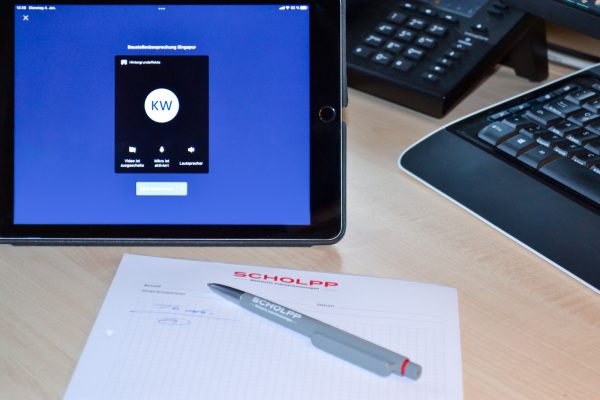SCHOLPP has already been in action on construction sites in more than 65 countries. And Stefan Hermanowski has worked as a fitter on many of them. He now primarily coordinates foreign assignments in Asia and America. The professional globetrotter reports on his experiences and adventures.
Frankfurt Airport is one of the busiest airports in Germany – but a lot changed during the coronavirus pandemic. Where at other times crowds are always dashing for the gates, there was nothing but eerie silence. “When I flew to the US during the pandemic, there were just 24 people on board the huge Boeing,” says Stefan Hermanowski. In normal times, the SCHOLPP project manager flies around the globe once a week for foreign assignments. “My second home is above the clouds, so to speak,” he jokes.
A mouse click vs. forever and a day
Before the pandemic, senior SCHOLPP employees like Stefan Hermanowski often flew by plane to preliminary talks with the customer – this has since changed. Many meetings now take place digitally. But this also has advantages: Communicating with foreign customers in video conferences is much faster and more effective. And it not only saves SCHOLPP time and effort, but also contributes to protecting the environment. The old hands among his colleagues like Reinhard Röthel recall totally different times, when communication was by means of postcards and telegrams. “Back then, things took forever and a day; today, all it takes is a click of the mouse and the information is there,” says the senior installation manager, comparing the past with the present.
Seeing for themselves
Project work has also changed significantly in recent decades, becoming more complex and more small-scale. This is due, among other things, to the fact that there are different underlying conditions and rules in the individual countries. “Each country has its own laws, and we have to keep a close eye on them at all times,” says Stefan Hermanowski, who started out as a fitter at SCHOLPP and has since risen to become a project manager and authorized signatory. As a result, his responsibilities have changed, as the following example illustrates: He is currently overseeing greenfield projects in America. Here, SCHOLPP provides expertise, concepts and equipment for transport and installation and, of course, skilled personnel to companies that want to build a new factory on a virgin site.
While the theory can be discussed digitally, the practice is much more complicated in the pandemic era. “Site visits are always essential because the contracts we sign do not reflect what we ultimately find and what may happen during construction,” Hermanowski emphasizes. “Construction conditions, such as installation openings that are too small or different soil conditions, are not recorded in any contract.” If problems arise on site, SCHOLPP employees always go and see for themselves and then work with the customer and the trades involved to find a solution.
A changing world
If important tools or other relevant equipment are forgotten during shipping, the first thing the team does is to try to find a solution through SCHOLPP’s foreign subsidiaries. The same applies if, during the construction phase, they realize that additional material is required. “Dispatching an additional delivery from Germany makes no sense. The cost and effort involved with the transport are too high. What’s more, delivery takes several weeks,” says Stefan Hermanowski, summing up the disadvantages.
The branch offices also provide very good support both in the run-up to the project work and during the construction phase. “Our offices in Malaysia and Shanghai do all the research in terms of legislation, certification, liability and insurance,” the experienced project manager explains. The research is important because a lot has changed and evolved in the Asian region in the last decade, especially in China, which, he says, has undergone a 180-degree turn. “In general, there is a lot going on in Asia. Progress, growth and investment in the economy are clearly pointing in an upward direction.” He traveled to China for the first time in 2007 and then again in 2018 after a long interval. “I felt like I was arriving in a new world,” Hermanowski recalls.
“A supervisor isn’t a solo act.”
It is not only SCHOLPP’s own subsidiaries that provide support for foreign assignments, but also numerous partners. In recent years, SCHOLPP has built up a network that stretches across all continents and that is called upon time and again to support the supervisor. The latter steers the entire project by placing orders, supervising and checking work, and ultimately evaluating productivity. “A supervisor is never a solo act, but only as strong as the team and its partners,” emphasizes Stefan Hermanowski.
After all, a normal project can quickly take up to 60,000 working hours – and these can be shouldered only as a team. For the project manager, foreign assignments mean a lot of coordination and planning above all – and for him personally much more time in his second home above the clouds.


Leave A Comment